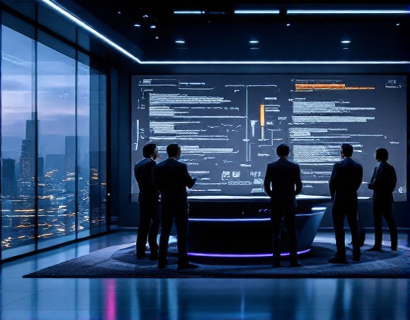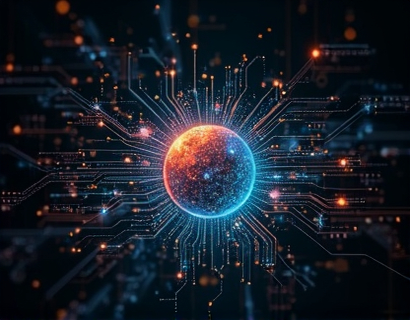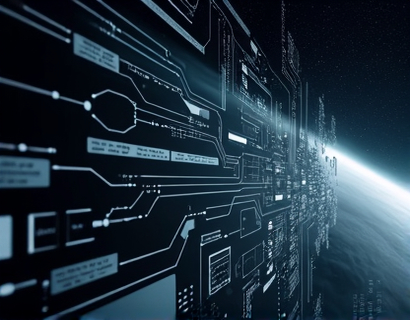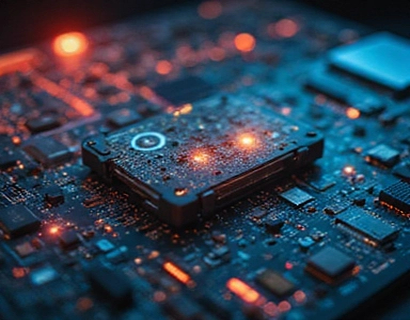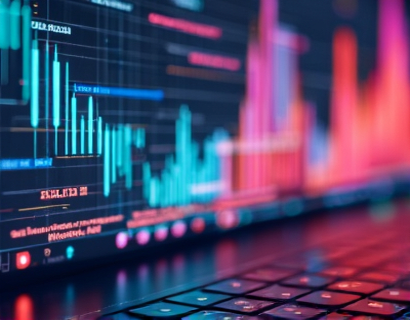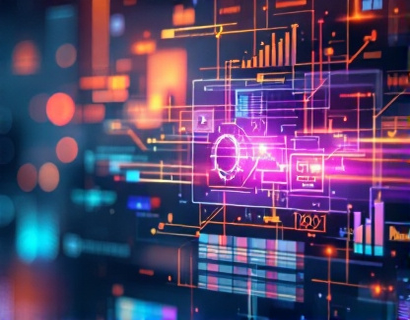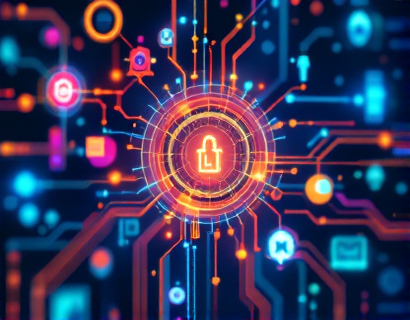The Synergy of AI and Crypto: Revolutionizing Digital Finance
The intersection of artificial intelligence and cryptocurrency is ushering in a new era of digital finance, one that promises unparalleled efficiency, security, and user-centric experiences. This transformative fusion is not just a technological advancement but a paradigm shift that is redefining how we perceive and interact with financial systems. As we delve into this topic, it's essential to understand the foundational elements of both AI and crypto, and how their integration is creating a synergy that is reshaping the landscape of digital finance.
Understanding Artificial Intelligence in Finance
Artificial intelligence, or AI, refers to the simulation of human intelligence processes by machines, particularly computer systems. These processes include learning, reasoning, and self-correction. In the context of finance, AI is leveraged to analyze vast amounts of data, identify patterns, make predictions, and automate complex tasks. The application of AI in finance spans various domains, from algorithmic trading and risk management to customer service and fraud detection.
One of the most significant advantages of AI in finance is its ability to process and analyze big data. Traditional financial systems rely heavily on human analysts to sift through data, a process that is time-consuming and prone to errors. AI algorithms, on the other hand, can handle massive datasets with speed and accuracy, uncovering insights that would be impossible for humans to detect. This capability is particularly valuable in the crypto space, where market data is vast and constantly evolving.
Cryptocurrency: A Brief Overview
Cryptocurrency, a digital or virtual currency that uses cryptography for security, operates on a decentralized network known as blockchain. The most well-known cryptocurrency is Bitcoin, but there are thousands of others, each with unique features and use cases. Cryptocurrencies offer several advantages over traditional fiat currencies, including decentralization, transparency, and security. However, they also come with challenges such as volatility, regulatory uncertainty, and scalability issues.
The decentralized nature of cryptocurrencies means that they are not controlled by any central authority, such as a government or bank. This decentralization is achieved through blockchain technology, a distributed ledger that records all transactions across a network of computers. Each block in the chain contains a cryptographic hash of the previous block, a timestamp, and transaction data. This structure ensures that once a transaction is recorded, it cannot be altered without the consensus of the network, providing a high level of security and transparency.
AI in Cryptocurrency: Enhancing Trading and Investment
The combination of AI and cryptocurrency is particularly potent in the realm of trading and investment. AI algorithms can analyze historical price data, market trends, and even social media sentiment to predict future price movements. These predictions can be used to automate trading decisions, execute orders at optimal times, and manage portfolios with minimal human intervention. This not only increases the efficiency of trading but also reduces emotional biases that can lead to suboptimal decisions.
One of the key applications of AI in crypto trading is the development of smart trading bots. These bots use machine learning algorithms to learn from past trading data and adapt to new market conditions. They can execute trades 24/7, monitor multiple markets simultaneously, and adjust strategies based on real-time data. This level of automation and continuous learning is a significant advantage over traditional trading methods.
Predictive Analytics in Crypto
Predictive analytics is another area where AI shines in the crypto space. By analyzing historical data and identifying patterns, AI can forecast future market trends with a degree of accuracy that surpasses human capabilities. This is particularly useful for investors looking to make informed decisions based on data-driven insights. AI models can incorporate a wide range of factors, including economic indicators, news sentiment, and technical indicators, to provide comprehensive predictions.
For instance, AI can analyze news articles and social media posts to gauge market sentiment. By understanding the tone and context of these sources, AI can predict how they might impact cryptocurrency prices. This sentiment analysis, combined with technical and fundamental data, creates a robust predictive model that can guide investment strategies.
AI-Driven Security in Cryptocurrency
Security is a paramount concern in the crypto world, given the high value of transactions and the potential for cyberattacks. AI plays a crucial role in enhancing the security of cryptocurrency systems. Machine learning algorithms can detect and prevent fraudulent activities by identifying unusual patterns and anomalies in transaction data. This proactive approach to security is far more effective than traditional methods, which often rely on reactive measures.
One specific application of AI in crypto security is the detection of phishing attacks. Phishing remains one of the most common threats to crypto users, where attackers trick individuals into revealing their private keys or wallet information. AI can analyze user behavior and network activity to identify potential phishing attempts in real-time, alerting users and blocking malicious activities before they cause harm.
Smart Contracts and AI
Smart contracts, self-executing contracts with the terms of the agreement directly written into code, are another area where AI can add significant value. AI can optimize the execution of smart contracts by analyzing conditions and ensuring that all parties adhere to the agreed terms. This not only enhances the reliability of smart contracts but also opens up new possibilities for decentralized applications (dApps) that require complex logic and decision-making.
For example, AI can be used to create more sophisticated and adaptive smart contracts that can respond to changing market conditions or user behaviors. This level of intelligence can lead to more efficient and trustless transactions, reducing the need for intermediaries and lowering costs.
AI in Crypto User Experience
Beyond trading and security, AI is also transforming the user experience in the crypto space. User-friendly interfaces, personalized recommendations, and intuitive navigation are becoming standard thanks to AI-driven design and analytics. For newcomers to the crypto world, AI can provide guided onboarding processes, explaining complex concepts in simple terms and offering step-by-step instructions.
Personalization is another key aspect. AI can analyze user preferences and behavior to recommend relevant crypto assets, trading strategies, and educational resources. This tailored approach not only enhances the user experience but also helps users make more informed decisions, reducing the learning curve associated with crypto investments.
Voice and Chatbot Integration
The integration of voice assistants and chatbots powered by AI is making crypto more accessible than ever. Users can interact with crypto platforms using natural language commands, making the process more intuitive and user-friendly. Chatbots can provide real-time support, answer common questions, and assist with transactions, all around the clock. This level of accessibility is particularly beneficial for users who may not have extensive technical knowledge.
Moreover, AI-powered chatbots can learn from user interactions, improving their responses and recommendations over time. This continuous improvement ensures that the user experience remains top-notch, fostering greater user engagement and satisfaction.
Challenges and Considerations
While the integration of AI and crypto offers numerous benefits, it also comes with its own set of challenges. One of the primary concerns is the regulatory landscape. The decentralized and borderless nature of cryptocurrencies poses challenges for regulators, who are still grappling with how to oversee these new financial instruments. AI, with its ability to process and analyze vast amounts of data, can help in compliance and regulatory reporting, but it also raises questions about data privacy and the potential for misuse.
Another challenge is the technical complexity involved in developing and maintaining AI systems. Building robust and reliable AI models requires significant expertise and resources. For crypto projects, this means investing in skilled teams and infrastructure to ensure that AI solutions are both effective and secure.
Ethical Considerations
Ethics play a crucial role in the development and deployment of AI in the crypto space. Issues such as bias in AI algorithms, transparency in decision-making, and the potential for AI to exacerbate market volatility need to be carefully addressed. Ensuring that AI systems are fair, transparent, and accountable is essential to maintaining trust and credibility in the crypto ecosystem.
Additionally, the environmental impact of AI and crypto should not be overlooked. The energy consumption associated with training AI models and maintaining blockchain networks is a growing concern. Exploring more sustainable practices and technologies, such as proof-of-stake consensus mechanisms and energy-efficient AI algorithms, is crucial for the long-term viability of this synergy.
The Future of AI and Crypto
Looking ahead, the future of AI and crypto is bright, with numerous opportunities for innovation and growth. As AI technologies continue to advance, we can expect even more sophisticated applications in the crypto space. From decentralized finance (DeFi) platforms that leverage AI for better risk management and yield optimization, to non-fungible tokens (NFTs) that use AI to create unique and valuable digital assets, the possibilities are vast.
The integration of AI and crypto is not just about enhancing existing systems but also about creating entirely new paradigms. For instance, AI-driven decentralized autonomous organizations (DAOs) can leverage machine learning to make collective decisions, optimize resource allocation, and ensure governance transparency. These DAOs can operate with a level of efficiency and fairness that traditional organizations cannot match.
Conclusion
The synergy between AI and crypto is transforming digital finance in ways that were once unimaginable. By combining the power of intelligent algorithms with the decentralized potential of cryptocurrencies, we are witnessing a revolution that is enhancing user experiences, improving security, and opening up new avenues for innovation. As this field continues to evolve, it is essential for tech enthusiasts and innovators to stay informed and engaged, ready to embrace the future of finance.













